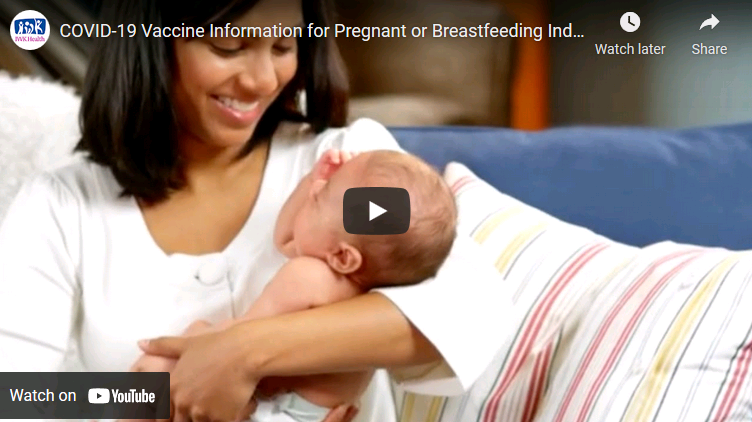Labour is a dynamic process, with each birthing person experiencing the pain of labour differently. Effective pain management involves understanding the range of available strategies and choosing the options that best support comfort, control, confidence, and enhance coping throughout each stage of labour. This infographic outlines both non-pharmacologic and pharmacologic pain management techniques—highlighting practical, evidence-informed methods that can be used alone or in combination. By exploring these approaches, labouring individuals, care providers, and support persons can make informed decisions that align with personal preferences, clinical needs, and support the progression of labour.
Clinical Practice Resources
|
|
|
This handout, developed at IWK Health, addresses questions and concerns about sexual health that may arise after child birth: issues such as body image, fatigue, stress, hormones, new responsibilities as a parent, relationships, the birthing experience, previous trauma, and mental health. Additionally, the Post Baby Hanky Panky site offers a series of short films (less than 1 min each) based on recent research on psychological risk and protective factors affecting both the sexual and relationship satisfaction of new parents. http://postbabyhankypanky.com/ |
|
The Nova Scotia Vaccine Expert Panel has updated resources for care providers to use with pregnant and breastfeeding individuals to guide discussion about COVID-19 vaccination. This information is specific to adult immunization. In addition to these documents, the IWK has produced a video to help individuals make an informed choice about whether to get the COVID vaccine while they are pregnant, trying to get pregnant or breastfeeding. The video is hosted on the IWK public website: https://www.iwk.nshealth.ca/COVID-19/vaccine-info-for-pregnant-or-breastfeeding For more resources related to the care of pregnant patients and their newborns affected by COVID-19, please refer to our COVID-19 Resources page. |
|
This document describes care and services for heathy populations and contains guidance in four key areas: Reducing Health Inequities; Promoting and Supporting Healthy Infant Development; Promoting and Supporting Parent Postpartum Physical and Emotional Well-Being; and Supporting Healthy Transitions and Follow-up. |
Syphilis and Screening in NS for Pregnant Persons and NewbornsThe rate of syphilis in Canada has been steadily rising in recent years, becoming a significant public health concern. A surge in syphilis infection among women of childbearing age has led to more cases of congenital syphilis (transmission from the pregnant person to the fetus during pregnancy), which can result in severe health outcomes or death in newborns. An infographic created by the Public Health Agency of Canada provides a visual aid depicting the increase in syphilis rates in Canada. Cases of syphilis in pregnancy and confirmed cases of syphilitic stillbirth are reportable to Public Health. The rise in cases has led to national research exploring strategies to address infectious and congenital syphilis in Canada. ScreeningScreening recommendations for syphilis during the antenatal and postpartum periods, and for newborns are provided below. These recommendations have been in place since 2020, were adapted from national guidelines, and remain in place until further notice. See the letter to care providers from January 2020 for additional practice guidance regarding consultation, testing and treatment.
Nova Scotia Department of Health and Wellness Syphilis Surveillance GuidelinesThe Nova Scotia Department of Health and Wellness have updated the Syphilis Surveillance Guidelines and they are now available. The update comprises the addition of new stages for congenital syphilis, including late congenital syphilis and syphilitic stillbirth. Surveillance Guidelines for congenital syphilis and non-congenital syphilis have been separated into two documents, both of which also contain guidelines for identifying syphilis outbreaks. For more information please access the Syphilis section of the Communicable Disease Manual that is accessible on the Nova Scotia Department of Health and Wellness website. Provincial Syphilis Outbreak: Recommendations for pregnant persons and newbornsAs of January 20, 2020, the Office of the Chief Medical Officer of Health for Nova Scotia has declared a provincial syphilis outbreak. Across Canada syphilis outbreaks have been declared in most provinces/territories, due to increasing rates of infection. Changes to recommendations for pregnant women and newborns are outlined in the documents below: |
|
The Canadian Paediatric Society (CPS) has recommended moving from universal newborn ocular prophylaxis, to universal prenatal screening for Neisseriae gonorrhoeae (GC) and Chlamydia trachomatis (CT) and treatment of those with positive results in order to eradicate infection and prevent intrapartum transmission to the newborn. As universal ocular prophylaxis is eliminated from routine newborn care, functions of the health system must be optimized and synchronized to prevent ON. RCP has partnered with clinical experts and stakeholders from across NS to produce these resources, which are designed to offer guidance for the prevention of ON: |
|
Below are links to PDF documents from the Nova Scotia Health Authority (NSHA). You can find these documents on the NSHA patient information pamphlets listing using the keywords "loving care" and "tendres soins" or individually by searching the pamphlet numbers, given below. Loving Care is a series of books developed by Nova Scotia Public Health Early Years and are designed for parents of children up to three years old. Loving Care gives tools to help young families protect, promote or improve their health and to prevent illness, injury or disability. These books have been developed to help parents to better recognize and build on their own strengths as parents. These resources are free to parents from Public Health and also can be accessed here on the Nova Scotia Health website: Public Health Parenting Supports page. They are available in downloadable PDF below. *Note: Translation of the redesigned versions into French will be available at some time in the future.
|





